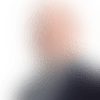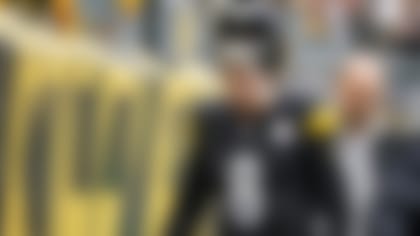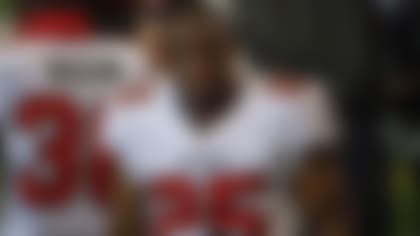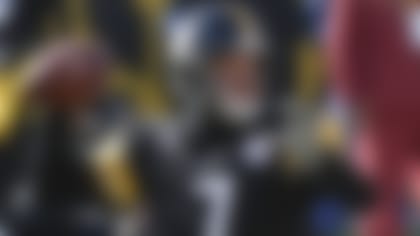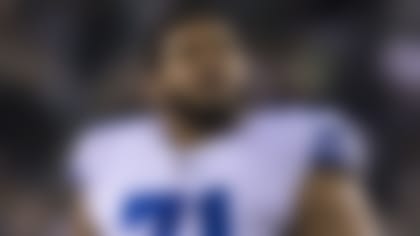Ricky Williams might have a reputation for flakiness, but is there any NFL player of the past two generations more qualified to weigh in on the controversy involving Miami Dolphins offensive linemen Richie Incognito and Jonathan Martin?
Williams played with Incognito in Miami and shared Martin's need to step away from the NFL lifestyle. One never knows what answers Williams will provide, but they are consistently refreshing and thought-provoking as opposed to typical jock bromides.
In a Tuesday morning interview with KGMZ-FM in San Francisco, Williams balked at the idea that Incognito's actions qualify as hazing or bullying in the uniquely demanding culture of professional football.
"How is bullying something that's even mentioned regarding the NFL?" Williams wondered. "Because that's kind of what we're taught to do -- at least on the field -- is to bully the guy across from us so we can win the football game.
"It's kind of what we're subjected to on a day-to-day basis that most people will never be able to understand. ... What we're required to do physically, mentally and emotionally for the course of a season is astronomical -- it's amazing," Williams added. "And I'm not saying that it's bad. I'm saying it just really speaks to what it takes to be a professional football player. And to me there's no room to play the victim or to be bullied or to even have that discussion when it comes to the NFL. If you're having that discussion, it just means that maybe you don't belong in the NFL."
Williams should know. Nine years ago, he came to his own realization that he didn't belong in the NFL.
"I think I can relate and I can speak on this because I was at a point where I was done with the NFL and I needed to take a break," Williams said. "But unlike Jonathan, I didn't have to find a scapegoat or someone to blame. ... I didn't have to bring anyone else down when I found out that I just couldn't handle what I was going through at the time."
Williams went through many of the same experiences as Martin early in his career, but emphasized that he never took it as a personal attack.
"I just understood that's the nature of the game," Williams explained. "When I came in as a rookie, they called me 'Ricky Weirdo.' And they busted my balls and they gave me a hard time, but I just laughed because it was funny. ... If someone sent me those messages, I would send a text back and call him a redneck and put 'lol.' To me, situations that you got yourself into, you got yourself into. It falls on you to find a way to get yourself out. And I'm not judging the way he got himself out of the situation. I actually think it's quite brilliant.
"There's all these text messages and these voice messages," Williams went on. "It takes some awareness and some planning and some orchestration to actually save those and record those. ... (Martin) is fighting (Incognito), but he's just doing it in his own way. If we're going to talk about the story as a hazing story -- which doesn't fit -- or as a bullying story, it's really a great example of the kid that is 'getting bullied' fighting back in his own way. ... I think they're both victims. I think the truth is never going to come out. One guy has a paid vacation. And one guy has a vacation that's not paid right now."
Asked about the racist language allegedly used by Incognito in text and voice messages, Williams took exception to the notion that societal standards apply to a locker room setting.
"It's not inflammatory if it's your family," Williams said. "When you look at a team, especially two guys that play the same position, and you really understand how much time they spend together, you can't put it in the context that you would put it outside of a family setting. ... If you had a tape recorder in the locker room, you would hear a lot of stuff that wouldn't fly in the media. A football team, the NFL, it's a fraternity. ... It's not fair and it's not right for people on the outside to judge and try to figure out what's going on on the inside, because most of the people on the outside wouldn't last a week on an NFL team."
In Williams' experience, Incognito is not a racist. He also believes coach Joe Philbin's responsibility was to step in only when the actions of the other linemen affected Martin's play.
"The locker room, we keep coaches out for a reason. It's our space," Williams emphasized. "When I look at the issue, it's not about racism, it's not about bullying, it's not about hazing. It's about a lack of leadership in that locker room. ... And this is just one of the ways in which it's manifested."
Williams' comments are fascinating, but it's fair to wonder if he's letting Philbin and a troubled Incognito off the hook.
Hall of Famer Bill Walsh's coaching treenevertolerated any form of hazing or harassing. Pete Carrolldoesn't allow it in Seattle. Jimmy Johnson and Mike Shanahan have said they've never witnessedbullying to the extent that is alleged in this circumstance.
The hope now is that the Dolphins' leadership failure will lead to positive change as more NFL locker rooms embrace Walsh's philosophies and reject a philistine vestige of the sport's past.
The "Around The League Podcast" recapped every Week 9 game. Click here to listen and subscribe.
